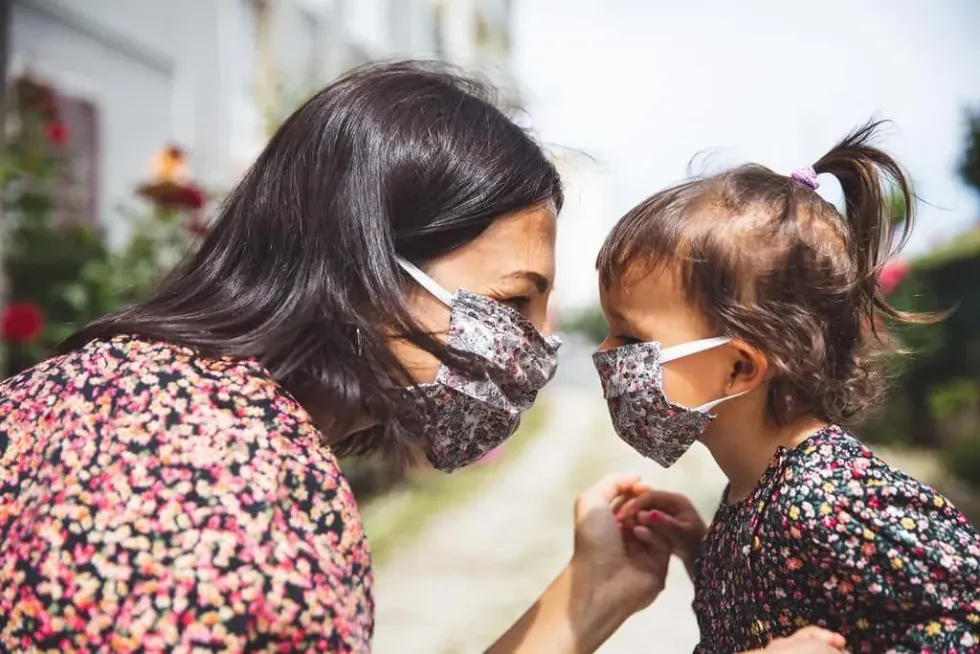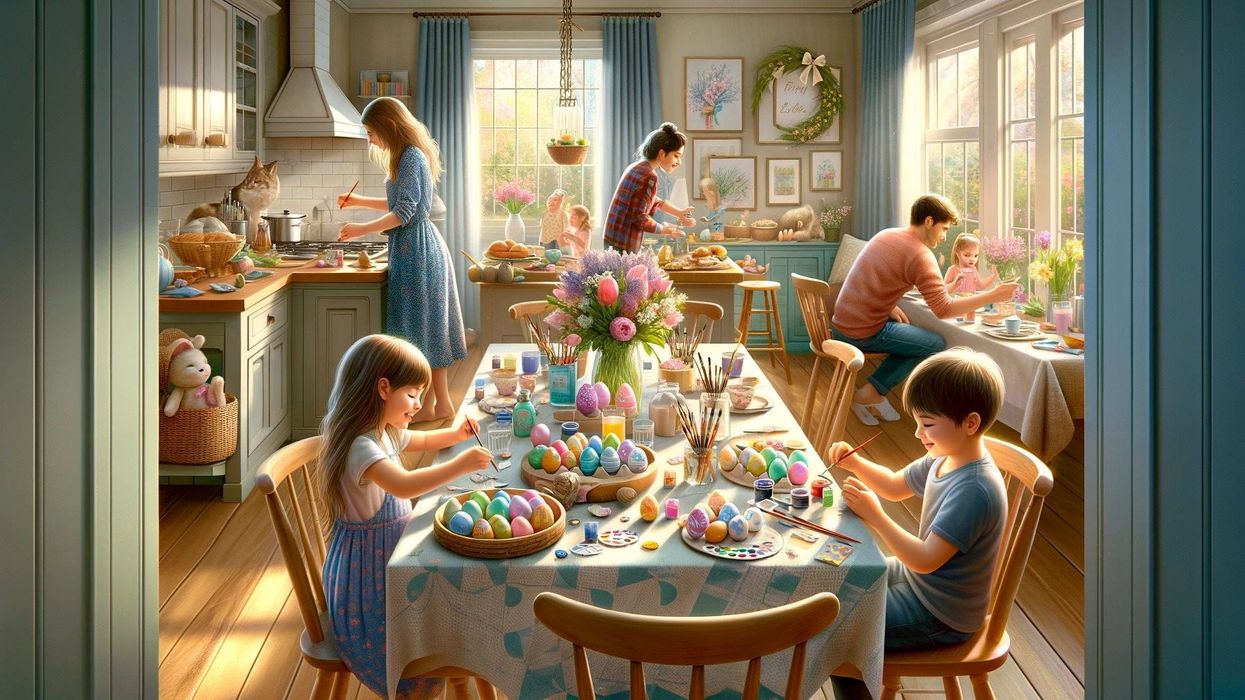New lockdown measures will be introduced in England from Thursday 5 November, and will last until at least Wednesday 2 December (subject to parliamentary approval). The main rules have been widely circulated.
They include the closure of all restaurants, pubs, cafes and hospitality venues (except for takeaway or delivery service), closure of most leisure facilities, and much tougher rules on mixing between households. Here we look at how the lockdown will affect family life.
The following information is accurate at the time of writing, but may change at short notice. Always check the Government website for the latest updates. Advice here is for England. Different rules may apply to other parts of the United Kingdom.
Can I Still Get Childcare?
Yes, the rules on childcare are unchanged. You can continue to access nurseries, child-minders and other registered childcare providers just as before. The concept of Childcare bubbles also remains an option. This is where a friend or relative looks after children on an informal (unpaid) basis -- but you can’t change who that person is.
Will Schools Remain Open?
As things currently stand, all schools, colleges and universities will remain open throughout the lockdown. The Government has consistently said that it wants to keep educational institutions open as a priority. This may of course change if case numbers continue to climb.
Can Children See Their Friends?
The rules on meeting up just got tougher. The Rule of Six is no longer applicable and, in general, only one individual may meet with one other individual from another household. That would appear to prevent children seeing their friends, but the rules are a little more nuanced than that depending on the age of your children.
Infants and preschoolers are exempt from the main rule.
According to the Government: “children under school age, as well as those dependent on round-the-clock care, such as those with severe disabilities, who are with their parents will not count towards the limit on two people meeting outside”.
So, for example, two dads and their nursery-age kids could all go for a walk in the park together (as long as the households kept social distance rules).School-age children will now only be able to mix with friends at school (or another educational setting). Otherwise, meeting up with other households is not allowed, either indoors or outdoors.
The exception would be two children who need round-the-clock care (see previous paragraph).Teens and older children who do not need supervision may meet outdoors with one teen or child from another household.
Can Children See Their Grandparents?
The rules about meeting up apply to grandparents, too. You can’t go round to see the grandparents, and they can’t come to visit you. There are exceptions, however.
- If your two households form part of a support bubble (e.g. a single grandparent living on their own could bubble-up with your family; or a single-parent family can bubble-up with the grandparents -- see the government’s website for more details about bubbles).
- One grandparent could meet with one child in an outdoor space (though not a private garden).
- If the grandparent is part of a ‘childcare bubble’ (see above).
Note that people over 60 or those who are ‘clinically vulnerable’ to the virus should be particularly careful during the lockdown period.
Can My Children Still Play Sports?
The Government is encouraging families to get out to exercise (which may include going for a walk or cycle, or any kind of other physical activity), so long as you do so within your household or support bubble.
Gyms and leisure centres will be closed as will dance studios, stables, cinemas, theatres, softplay, museums and pretty much any other leisure- or entertainment-focussed venue you can name.
In addition, the Government has also shown the red card to organised team sports, such as football practice, which were allowed under the tier system. Children will still be able to play sports at school as part of normal PE lessons, however.
Are Playgrounds Going To Close?
Nothing in the current advice suggests that outdoor playgrounds will close. In fact, they’re specifically listed as an outdoor place you can still visit. You should, of course, take all precautions to minimise the risk of exposure.
If We Go To A Park, Do We Have To ‘Exercise’?
You may remember that the first lockdown was tough on what we could do outdoors. For the first few weeks, at least, we were only permitted to use parks for exercise.
Picnics -- crazy as it still sounds -- were illegal. This time round, the rules seem to be more permissive.
The Government guidelines say that you can “exercise outdoors or visit an outdoor public place”.
This suggests that simply sitting around in a park is allowed, so long as you don’t infringe any of the other rules about mixing.Government guidance also suggests that any public garden, whether freely open or paid entry, can remain open.
This seems to imply that places like Kew Gardens and National Trust or English Heritage grounds may be able to stay open, though this has not been confirmed at the time of writing.
Can We Drive Somewhere To Have A Day Out?
Yes, it seems you can. The initial advice, when lockdown was announced, required people to stay local (without a definition of what "local" meant).
Restrictions have now been updated to allow travel "to spend time or exercise outdoors - this should be done locally wherever possible, but you can travel to do so if necessary (for example, to access an open space)".
So, for example, you can drive an unspecified distance to visit National Trust properties, Kew Gardens, national parks,or any of the other outdoor venues that remain open.
Can We Hop On The Train To Go Somewhere Else?
Public transport is best left to those who really need it like key workers and those whose jobs cannot be done from home. However, the updated guidelines suggest you can use trains and buses to reach outdoor spaces like parks and gardens. You'll need to wear a mask and follow all rules around hygiene and social distancing.
Can I Take The Kids To The Shops?
Non-essential shops will be closed. Supermarkets and other suppliers of essential items will remain open. The guidelines do not say you cannot take children to the supermarket -- some people have no other option.
However, it would make sense to avoid doing so wherever possible. In addition, supermarkets will be allowed to sell ‘non-essential’ items, unlike the recent ‘circuit breaker’ in Wales, which saw whole aisles roped off. The list of essential shops also includes garden centres, pharmacies, hardware stores, building merchants and, curiously, off-licences.
Do I Have To Work From Home?
The Government has asked that anybody who can work from home should do so. Jobs which cannot be performed from home (for example construction and manufacturing) should continue as before, so long as the workplace remains open.
Once again, this information is subject to change at short notice, and you should always check the Government website for the latest information.








